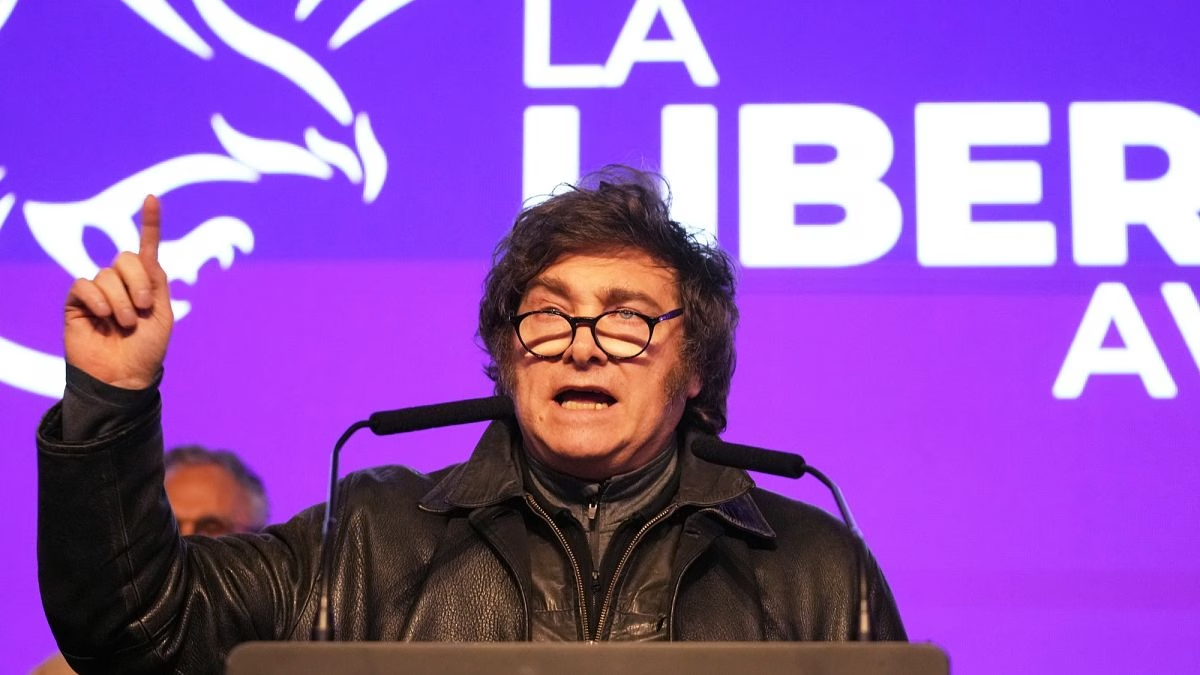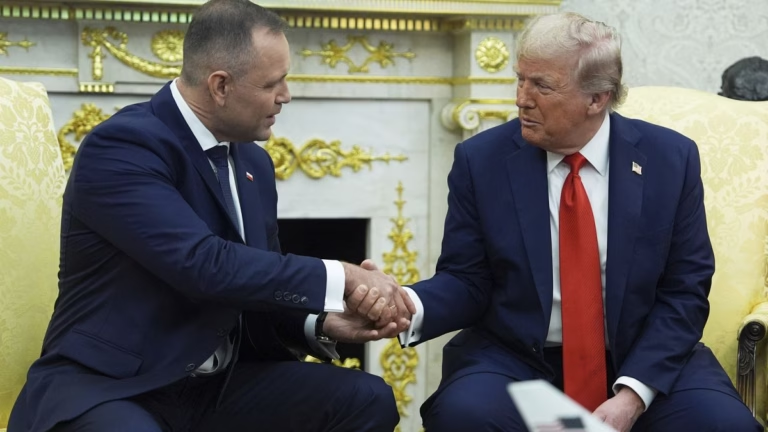By Euronews with AP
Published on

ADVERTISEMENT
Argentine President Javier Milei faced a significant defeat in a key Buenos Aires provincial election on Sunday, which was seen as a test of his libertarian party’s performance in crucial congressional midterms next month.
The newly formed La Libertad Avanza party led by Milei won just 34% of the vote in Argentina’s largest province, losing by a wide margin to the left-leaning Peronist opposition, who secured 47% of the vote with most of the ballots counted late Sunday.
Milei admitted that his party’s loss by 13 percentage points was a “clear defeat.”
“If anyone wants to begin rebuilding and moving forward, the first thing they must do is accept the results,” Millei said to his supporters at the party headquarters.
He pledged to “accelerate” his libertarian reforms following the defeat. The 54-year-old has championed a major deregulation drive since taking office in December 2023, reducing public spending and firing tens of thousands of public employees.
‘Wake up call’
Milei needs to expand his party’s small minority in the opposition-dominated Congress in midterms next month to achieve his radical libertarian vision for Argentina’s struggling economy.
The Peronists are currently the dominant force in Argentina’s congress and have used their power to pass social spending measures that counter Milei’s efforts to balance Argentina’s budget.
Former President Cristina Fernández de Kirchner — who remains a powerful Peronist leader despite a corruption conviction that has barred her from politics and resulted in her being placed under house arrest — celebrated wildly from the balcony of her home in the nation’s capital.
Fernández taunted Milei on social media, arguing that the bribery scandal affecting the president’s influential sister would be “lethal” to his electoral prospects.
“Get out of your bubble, brother. … Things are getting heavy,” Fernández wrote.
Although Milei has successfully reduced Argentina’s triple-digit inflation over the past few months, the population has not yet seen the economic revival the president promised would follow his harsh austerity measures.
“While not the main national election in October, it is nonetheless a wake-up call for the government, and how it reacts will be crucial to understanding the evolving political landscape,” Juan Cruz Díaz, the head of Cefeidas Group, a consultancy in Buenos Aires, remarked to AP.
“This result is a key indicator of the social mood — where the opposition stands, the state of Peronism, and the level of support for the government in Argentina’s most critical electoral area,” he added.
The outcome also highlights Fernández’s former protégé, Axel Kicillof, the left-wing governor of Buenos Aires province and one of Milei’s strongest opponents, as the preferred choice to lead the future of Peronism.
Kicillof delivered an uplifting speech late Sunday, criticizing Milei and reminding voters what they have lost by switching from Peronist populism to Milei’s severe spending cuts.
“The ballot boxes told Milei that public projects cannot be stopped. They showed him that retirees cannot be mistreated, that people with disabilities cannot be abandoned,” he stated to his cheering supporters.





